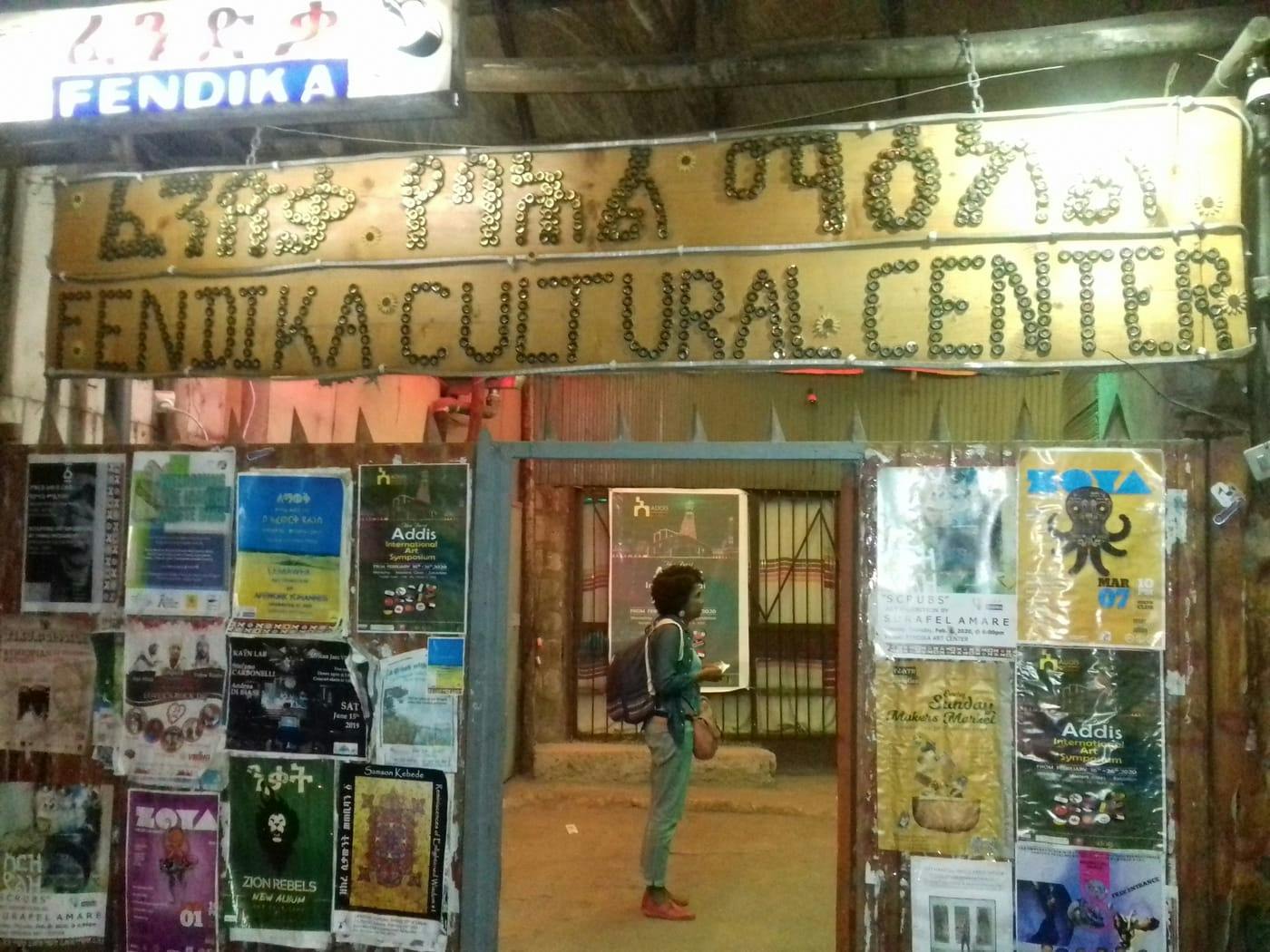The vibrant and cherished Fendika Cultural Center, renowned for its artistic expression and cultural exchange, is now in danger of being demolished, sending shockwaves through the creative community. Artists, activists, and supporters have joined forces to raise their voices in protest against the potential loss of this vital cultural institution that has garnered both local and international recognition, including the prestigious Prince Claus Laureate.
Established in 2016 by Melaku Belay, an ardent cultural enthusiast, Fendika Cultural Center has become a symbol of artistic freedom and a platform for local and international artists to showcase their talents. Nestled in the heart of Addis Ababa, the center has hosted many exhibitions, poetry sessions, jazz nights, and other cultural events, attracting visitors from all corners of the globe.
The news of the center's impending demolition arrived abruptly, delivered to Melaku Belay in a cryptic message urging him to attend a discussion without further details. During this meeting, he learned of the government's plans to clear the land for a five-star hotel, prompting many to question the priorities of preserving culture and the arts.
Leading the proposed construction project is Tileksew Gedamu, the CEO of 'IRONLADY' International Investment Group. Originally privately owned, the land was later acquired by Melaku Belay, who diligently fulfilled the terms of a 30-year lease. The wheels were already in motion to construct a 20-story hotel, with the necessary permits being processed. The center's expansion into international branches, including Paris, New York, and other European cities, was also in progress.
The impending loss of the Fendika Cultural Center has left the artistic community devastated, as it is a place that holds a special place in the hearts of many. Renowned bass guitarist Henok Temesgen, co-founder of Jazzamba Music School, expressed his profound sadness: "Fendika holds immense significance for me, and the news of its demolition is truly devastating."
Henok emphasized that international music bands prioritize performing at Fendika, underscoring its international recognition and reputation. The center has also become a mecca for cultural enthusiasts and visitors seeking an authentic experience, contributing to the city's vibrant artistic landscape.
The sentiments shared by visual artist and lecturer Hailu Kifle mirror Henok's distress. Hailu expressed personal sadness and broader concerns for the country, noting, "The news of Fendika Cultural Center's demolition raises questions about our nation's commitment to preserving cultural heritage."
Hailu emphasized the center's distinctive features, including its round-the-clock open exhibitions that have served as a wellspring of inspiration for artists and visitors alike. Hailu himself recently held an art exhibition at Fendika, witnessing firsthand the opportunities it provided for artists to freely express their creativity and sell their work under their names.
The potential loss of Fendika Cultural Center extends beyond personal grief. It represents a significant setback for the city's artistic growth and creative expression, as it has long served as a nurturing space for aspiring artists to explore and develop their talents without financial constraints or censorship.
Critics argue that the demolition of the Fendika Cultural Center reflects a more significant issue regarding the government's commitment to preserving cultural heritage and supporting the arts. They contend that the center has undertaken a role that should fall within the government's purview, generating tourism income and attracting visitors seeking an authentic cultural experience. Prioritizing commercial development over cultural preservation raises concerns about the government's dedication to nurturing the artistic soul of the nation.
The news of Fendika Cultural Center's impending demolition has galvanized a passionate response from supporters who are rallying together, organizing protests, and launching social media campaigns with the hashtag #SaveFendika. They aim to raise awareness about the center's cultural significance and implore the government to reconsider its plans, stressing the importance of a balanced approach that fosters economic growth and artistic expression.
Despite the growing outcry, the Addis Ababa City Administration has remained tight-lipped, withholding official statements. The fate of Fendika Cultural Center hangs precariously in the balance, leaving the artistic community, along with concerned citizens, anxiously awaiting a resolution that will safeguard this vibrant cultural institution for generations to come.
As the voices of artists, activists, and supporters intertwine in solidarity, there remains a glimmer of hope that Fendika Cultural Center will be spared from demolition, allowing it to continue illuminating the artistic landscape and serving as a beacon of cultural exchange, not just in Ethiopia, but across the globe.


